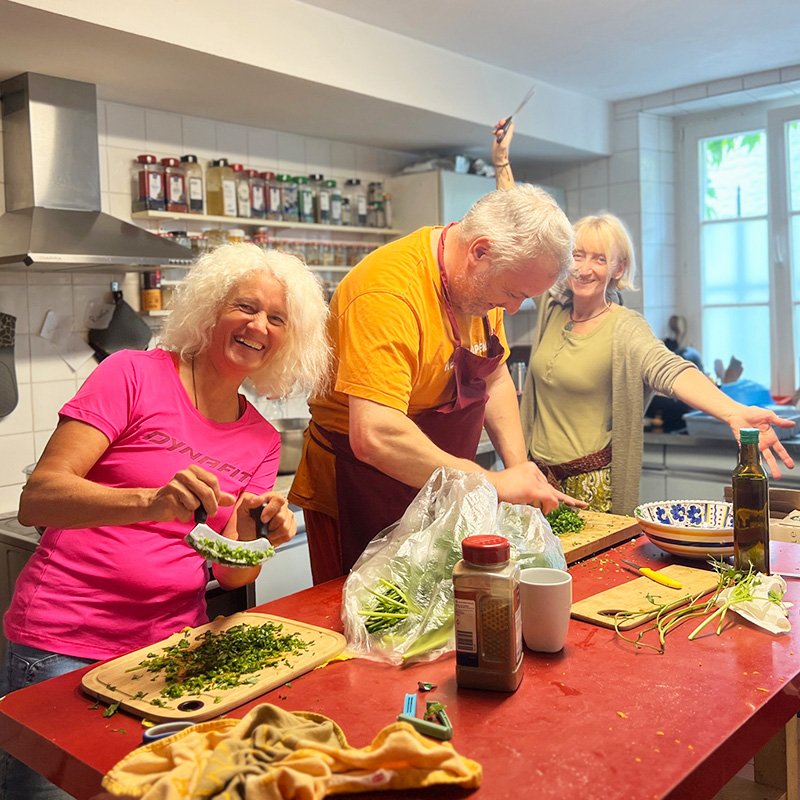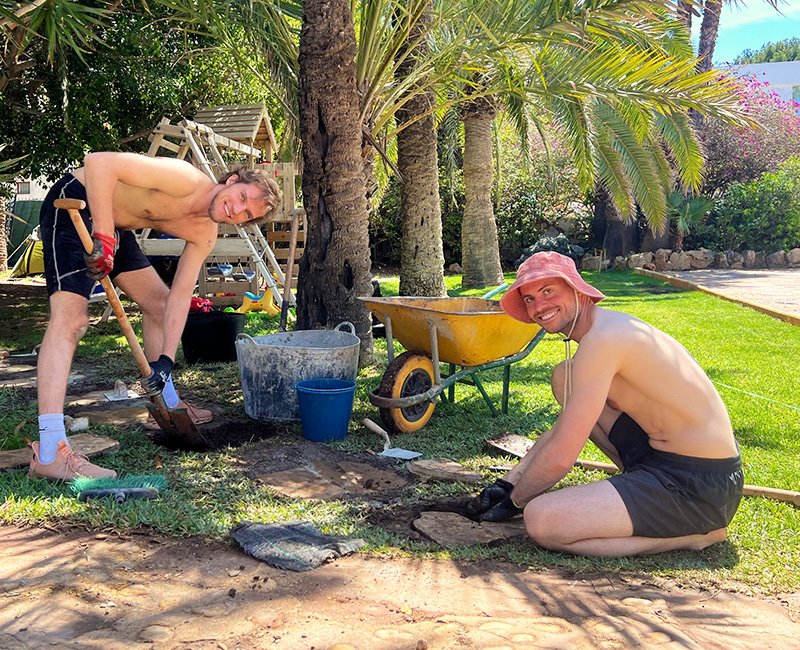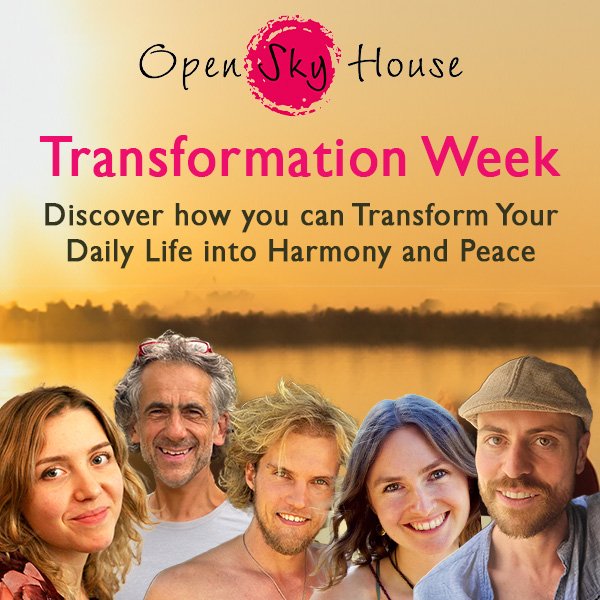
Latest Newsletter
Spiritual Shortfilms:
Teachings, Inspirations, Motivations
by John David
Kommende Events:
Weekly Zoom Meetings
Start again in Autumn 2025
Public Live Satsang
Start again in Autumn 2025
New Book
about Self Realisation
Mantra Music
with the Open Sky Band
Darkness Retreat


Karma Yoga literally means “the Yoga of Action.” It is the practice of performing every action – big or small – with full awareness, selflessness, and an open heart. Instead of focusing only on the result, the emphasis is on being completely present in the act itself.
– John David
At Open Sky House, between Cologne and Düsseldorf and at Open Sky Oasis between Valencia and Alicante, both living ashrams and meditation centres, Karma Yoga is a central part of daily life.
Every task – cooking, cleaning, welcoming guests, gardening – becomes a chance to practise mindfulness and see through the patterns of the ego.
In a world full of distractions and pressure to achieve, Karma Yoga offers a radical shift in perspective:
Many visitors feel that after only a few days of practice, inner tension begins to melt away, old patterns soften, and a new sense of lightness appears in their daily life.

Karma Yoga is simple, yet it changes everything. The focus moves from getting something out of work to giving your whole attention into it, and in that movement, the texture of life changes. When you are truly present, even small tasks stop draining energy. They’re no longer fought with, justified, or used to negotiate identity; they’re just done.
You can feel it in small moments: the sound of a knife slicing a carrot during the preparation for a meditation weekend, the soft rhythm of a cloth moving over a plate after a shared lunch, the ring of a phone inviting a fully present “hello.”
What used to be a transaction (“I do this so I can have that”) becomes participation (“I am part of this”). From that sense of belonging, care and clarity naturally appear. Responsibility doesn’t feel heavy – it grows naturally from being connected to the moment.
You start noticing the habits that cause suffering as they happen—the subtle push of aversion, the pull of approval-seeking, the background hum of hurry—and you learn to let each movement soften rather than feeding the story.
This is where real empowerment begins: meeting life as it is, without the constant friction. Creativity follows more easily because presence frees up the intelligence that was locked in resistance. A better way to arrange the kitchen appears while washing a pot; a new welcome flow appears while writing to a guest; a kinder schedule emerges while sweeping the floor.
Living in community accelerates this learning. Others reflect what you can’t yet see in yourself, and feedback is easier to receive when the aim is growth, not performance. Over days, the nervous system recalibrates: less stress, more steadiness; less noise, more clarity. Paradoxically, you end a day of service with more energy than you began, because alignment consumes far less life-force than inner argument. The old belief equation (work = burden) dissolves into a different math: attention + service = contentment.
This shift isn’t only personal. When you act from presence instead of habit, you bring more ease and clarity into the space you share with others – rooms feel lighter, meals taste better, and conversations become more honest without becoming harsh. In a world strained by speed and self-interest, learning to work as an act of love is not an escape from responsibility; it is responsibility in its most caring form.
Karma Yoga trains that intimacy with life, one dish, one email, one breath at a time, until “work” and “practice” are no longer separate—whether you are in an ashram, a community, or your own home walking the path of transformation.

At Open Sky House, you can explore this way of living during our Transformation Week—a full immersion into community life where Karma Yoga blends with daily workshops for self-discovery. It’s a chance to step into a rhythm where work is not a burden but a meditation in action, where sharing meals, caring for spaces, and creating together become mirrors for seeing yourself more clearly.
Surrounded by others on the same path, you’ll experience how presence, honest feedback, and creative expression can unlock energy, dissolve old patterns, and open the heart. By the end of the week, many find not just a new understanding of work, but a fresh sense of belonging—to themselves, to others, and to life itself.
Frequently asked Questions on Karma Yoga
Karma Yoga is the path of selfless action taught in the Bhagavad Gita. It means acting without attachment to the results, offering your work to the Divine or to Truth itself. At Open Sky House, it’s expressed through daily service—cooking, cleaning, building, creating—done with full presence. The focus is not on “getting things done” but on doing each action from awareness.
Regular work is usually tied to personal goals—earning money, gaining recognition, securing comfort. Karma Yoga removes the personal agenda. The action becomes a meditation. Washing dishes is not a step toward finishing so you can relax; it is the practice itself. As Sri Ramana Maharshi pointed out, when there is no doer, there is only doing—effortless and free.
Many people imagine awakening happens only in meditation or silence. But life’s real “friction points” happen in relationship and activity. Karma Yoga exposes patterns of impatience, control, pride, and resistance. By meeting these moments consciously, the ego’s grip loosens. Papaji often said, “Sweep the floor until there is no sweeper”—meaning the outer act becomes a doorway to inner freedom.
You can practice anywhere, even alone. But in a conscious community, the mirror is sharper. Others will inevitably trigger your conditioning, which makes the work deeper. At Open Sky House, Karma Yoga is woven into communal life so the practice is constant, not separate from daily living.
Yes—if it’s done in the right spirit. Karma Yoga is not about keeping busy, but about surrendering the sense of “I am the doer.” When action happens without ego, without craving results, the mind quiets naturally. In that silence, your true nature reveals itself—not as something attained, but as what has always been present.